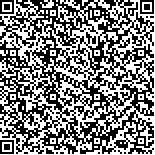|
| 引用本文: | 丁隆强,何晓辉,李新丰,方弟安,徐东坡.2016-2018年长江下游安庆江段四大家鱼仔稚鱼资源调查分析.湖泊科学,2020,32(4):1116-1125. DOI:10.18307/2020.0419 |
| DING Longqiang,HE Xiaohui,LI Xinfeng,FANG Di'an,XU Dongpo.The larvae and juvenile fish resources of the four major Chinese carps at Anqing section in the lower reaches of the Yangtze River from 2016 to 2018. J. Lake Sci.2020,32(4):1116-1125. DOI:10.18307/2020.0419 |
|
| |
|
|
| 本文已被:浏览 4853次 下载 3426次 |

码上扫一扫! |
|
|
| 2016-2018年长江下游安庆江段四大家鱼仔稚鱼资源调查分析 |
|
丁隆强1, 何晓辉1, 李新丰2, 方弟安1,2, 徐东坡1,2
|
|
1.上海海洋大学水产科学国家级实验教学示范中心, 上海 201306;2.中国水产科学研究院淡水渔业研究中心, 农业农村部长江下游渔业资源环境科学观测实验站, 无锡 214081
|
|
| 摘要: |
| 为探究长江安庆江段四大家鱼仔稚鱼资源现状及其丰度变化与水文因子之间的关系,于2016-2018年4-8月对该江段进行早期资源调查.调查期间共采集到四大家鱼仔稚鱼3178尾,其中以鲢(Hypophthalmichthys molitrix)和草鱼(Ctenopharyngodon idellus)为主,分别占家鱼捕捞总数的67.97%和23.03%.估算2016-2018年通过安庆江段的四大家鱼仔稚鱼径流量分别为21.70×108、14.62×108、12.05×108尾,呈现出逐年减少的趋势.家鱼仔稚鱼丰度自4月中旬呈波动性上升趋势,在7月中上旬达到高峰期.Kruskal-Wallis检验表明采样断面空间分布存在显著性差异,平均漂流密度为北岸(16.09 ind./100 m3) > 南岸(5.40 ind./100 m3) > 江心(3.43 ind./100 m3).GAM模型结果显示,对四大家鱼仔稚鱼丰度影响显著的水文因子为水温、透明度、水位日上涨率和径流量日上涨率,各因子相对重要性依次为水位日上涨率 > 透明度 > 水温 > 径流量日上涨率.其丰度与透明度呈负相关,与水温(24.0~27.3℃)、水位日上涨率和径流量日上涨率均呈正相关关系.本研究中GAM模型累积偏差解释率达到69.8%,较高程度上揭示了水文条件对家鱼仔稚鱼资源丰度的影响,为长江下游四大家鱼的苗汛预测及资源保护策略的制定提供科学依据. |
| 关键词: 长江安庆江段 四大家鱼 仔稚鱼资源 影响因子 |
| DOI:10.18307/2020.0419 |
| 分类号: |
| 基金项目:国家重点研发计划(2018YFD0900903)和长江下游鱼类早期资源种群补充机制研究项目(2017JBFR04)联合资助. |
|
| The larvae and juvenile fish resources of the four major Chinese carps at Anqing section in the lower reaches of the Yangtze River from 2016 to 2018 |
|
DING Longqiang1, HE Xiaohui1, LI Xinfeng2, FANG Di'an1,2, XU Dongpo1,2
|
|
1.National Demonstration Center for Experimental Fisheries Science Education, Shanghai Ocean University, Shanghai 201306, P. R. China;2.Scientific Observing and Experimental Station of Fishery Resources and Environment in the Lower Reaches of the Changjiang River, Minnistry of Agriculture and Rural Affaris, Freshwater Fisheries Research Center, CAFS, Wuxi 214081, P. R. China
|
| Abstract: |
| In order to explore the current situation of the larvae and juvenile fish resources of the four major Chinese carps in Anqing section of the Yangtze River and the relationship between abundance and hydrological factors,a total of 3178 larvae and juveniles were collected during the investigation from April to August of 2016-2018. Among which, Hypophthalmichthys molitrix and Ctenopharyngodon idellus formed the majority, accounting for 67.97% and 23.03% of the total larvae catches respectively. We estimated there were 21.70×108, 14.62×108 and 12.05×108 individual larvae of the four major Chinese carps drifted through the Anqing section in three years, the results indicated a decreasing trend annually. The abundance of Chinese carps has been increased intermittently since mid-April, and peaked in mid-July. The Kruskal-Wallis test showed that, there were significant differences for larvae with the highest drift density in the north of river and the lowest in the middle of the river. According to the results of generalized additive model, the hydrological factors that have significant influence on the abundance of larvae are water temperature, transparency, daily increasing rate of water level and discharge. The orders of the contribution to abundance of larvae were in sequence of the daily increasing rate of water level, transparency, water temperature and the daily increasing rate of discharge. Among them, the abundance of larvae was negatively correlated with the transparency, and positively correlated with the water temperature (24.0-27.3℃), daily increasing rate of water level and discharge. The accumulation of deviance explained by the optimized GAM to the abundance of larvae was 69.8%, which revealed the influence of hydrological conditions on the abundance of Chinese carps resources in early stage at a high degree. The results will provide a scientific basis for the prediction of seedling flood and protection strategy of the four major Chinese carps fisheries resource in the lower reaches of Yangtze River. |
| Key words: Anqing section of the Yangtze River four major Chinese carps larvae and juvenile fish resources impact factors |
|
|
|
|